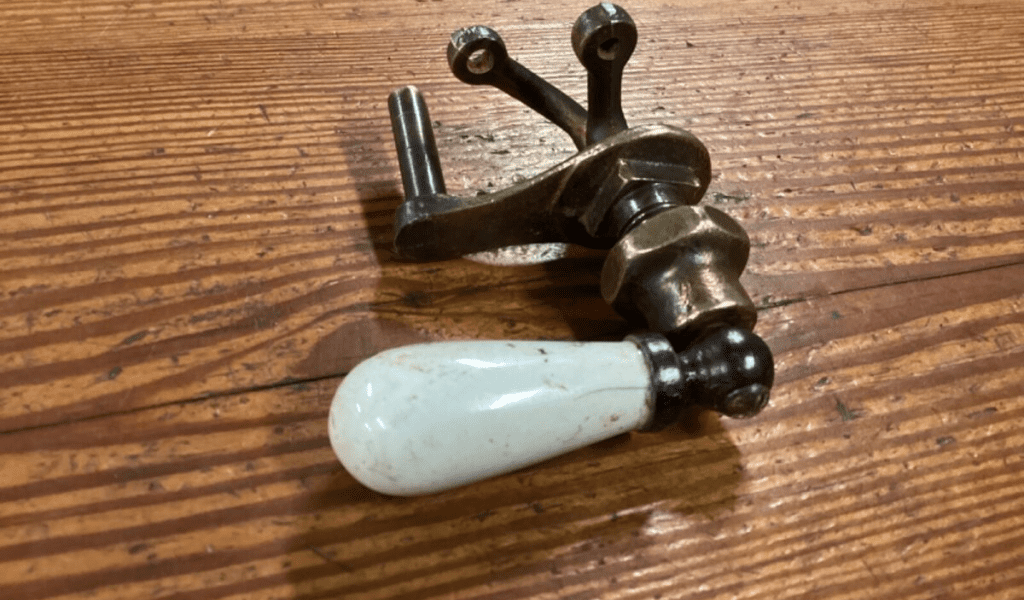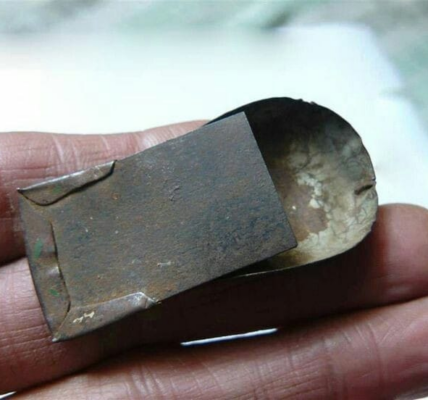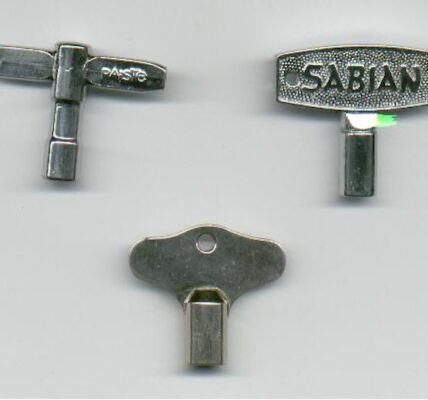When we think about the evolution of bathroom fixtures, one unlikely but essential component stands out—the vintage toilet tank lever. This simple mechanism has played a vital role in the functionality of toilets for over a century. In this article, we will dive into the history, usage, and legacy of the vintage toilet tank lever, a relic of both style and function in bathroom design.
A Brief History of the Vintage Toilet Tank Lever

The vintage toilet tank lever made its debut in the early 20th century, during a time when bathroom fixtures were shifting from purely functional to aesthetically pleasing. Before modern technology revolutionized toilet designs, toilets relied on basic mechanical systems to control flushing. The tank lever emerged as a crucial part of this system, giving users control over the water flow needed for a flush.
Materials and Design Evolution
The design of vintage toilet tank levers evolved over the years, but brass, chrome, and plastic were among the most commonly used materials. The choice of material reflected the interior design trends of the time, with brass and chrome often chosen for their durability and ability to add a touch of elegance to the bathroom. Some levers were quite elaborate, featuring intricate detailing that made them more than just a functional tool but also a design statement. These levers came in various shapes and finishes, designed to complement the overall style of vintage bathrooms.
Unlike today’s minimalist designs, vintage toilet tank levers were often highly decorative. In a sense, they were the perfect marriage of form and function, proving that even something as simple as a toilet lever could contribute to the overall aesthetic of a room.
The Mechanism and Usage of the Vintage Lever
So, how exactly does a vintage toilet tank lever work? The process is simple yet clever.
How It Works
When the lever is pushed or pulled, it activates a flush valve inside the tank. This valve releases a certain amount of water into the toilet bowl, which is crucial for flushing waste away. It’s a straightforward mechanical process, but it’s also one that required innovation when it was first developed. Unlike modern buttons or touch-activated systems, the vintage lever provided a more tactile, hands-on approach to flushing.
User Control
The lever was generally mounted on the side of the toilet tank, allowing easy access for users. The intuitive design allowed for straightforward operation: push the lever, and the toilet flushes. No complicated systems, no need for electronics—just a simple, effective way to get the job done.
Maintenance and Durability

Despite its robust materials, a vintage toilet tank lever wasn’t maintenance-free. Over time, components inside the tank, such as the flush valve or chain, might wear down, causing the lever to become less effective. But with occasional upkeep and replacement of worn parts, these levers could last for decades. In fact, many still function in vintage homes or retro-themed bathrooms today.
The Legacy of the Vintage Toilet Tank Lever

The vintage toilet tank lever holds a legacy far beyond its function. It represents a time when even the most mundane aspects of home design were treated with care and craftsmanship. Unlike today’s plastic-heavy fixtures, vintage levers were crafted with durability in mind. They were designed to last—and to look good doing it.
A Collectible and Nostalgic Piece
Today, vintage toilet tank levers have become sought-after items for collectors and enthusiasts of retro design. You’ll often find them in antique stores, restoration projects, and homes with a vintage aesthetic. For many, they represent a nostalgic throwback to an era when bathroom fixtures were made with more care and attention to detail.

These levers have historical value, too. In the early 1900s, as indoor plumbing became more widespread, bathroom fixtures like the toilet tank lever became symbols of modernization. They represented the progress being made in home design and the increasing importance of convenience and hygiene.
Modern Influence on Contemporary Design
Even though modern toilets have largely phased out the vintage lever in favor of more advanced mechanisms like push buttons or sensor-activated flushes, the classic design continues to inspire. You can still find modern toilet levers that mimic the vintage aesthetic, blending traditional charm with today’s efficient technology.
Some homeowners and designers prefer to incorporate these vintage-inspired levers into their contemporary spaces to add a touch of old-world style to a modern bathroom. They serve as a reminder that good design is timeless and that the past can still influence the future.
A Piece of History in Your Bathroom

The vintage toilet tank lever may seem like a minor detail in the grand scheme of bathroom design, but its role in the evolution of toilets is undeniable. From its origins in the early 20th century as a simple yet elegant flushing mechanism to its current status as a collectible item, the vintage lever combines functionality and style in a way that few other bathroom components can.
Whether it’s an actual vintage piece or a modern replica inspired by historical designs, the vintage toilet tank lever remains a lasting testament to craftsmanship, practicality, and aesthetic appeal. It’s a reminder that even the smallest details can carry a rich history and contribute to the overall design of a space. If you’re lucky enough to have one in your home—or if you’re considering adding one to a retro-themed bathroom—you’re not just installing a lever. You’re installing a piece of history.




